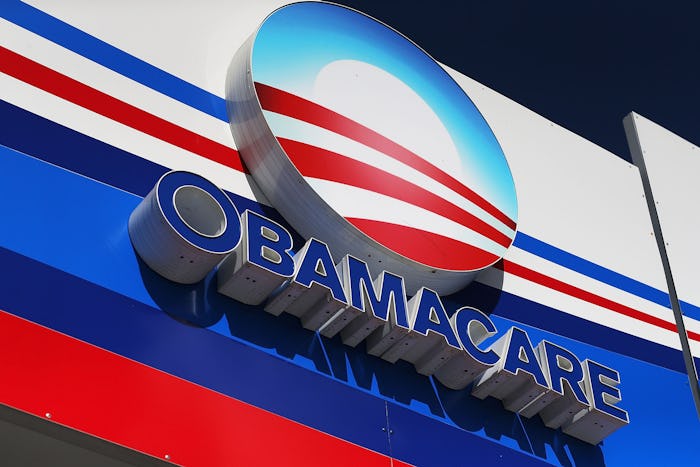Life

Why Are Obamacare Premiums Rising? It's Causing A Lot Of Controversy
Recent reports released by the Obama Administration reveal that Obamacare premiums are rising rather drastically. With an average increase of about 22 percent across 39 states next year, the figures don't bode well for those who continue to defend and promote the policies associated with The Affordable Care Act. But why are Obamacare premiums rising? Some experts claim that the market still has not evened out from a competitors' standpoint; others believe that initial estimates and premiums started out too low; and, ultimately, many insist that healthcare costs are simply rising overall.
Places where Obamacare premiums are rising drastically often only offer one insurer to choose from, eliminating all possible competition. This has occurred because multiple major insurers have stopped engaging in Obamacare seeing as it hasn't been immediately lucrative for them. Cynthia Cox, the associate director of health reform and private insurance at the Kaiser Family Foundation, echoes this sentiment, agreeing: "Where it really matters is where a big insurance company has exited and where that's going to leave just one company remaining." These policy holders then "won't have much choice if they want to receive financial assistance and purchase through the exchanges," Cox reminds.
Additionally, there's extreme disparity among the insured, with the top one percent of spenders accounting for 21 percent of funds, and the top five percent accounting for nearly half of all expenses. Caroline Pearson, senior vice president at Avalere Health, explains that, at the beginning of Obamacare, "high-need enrollees flocked to the program" and overwhelmed it. "Younger, healthier individuals" haven't utilized Obamacare to the same extent — a lack of participation which has prevented the equilibrium needed for the policy to even out.
Columnist Michael Hiltzik of The Los Angeles Times argues that the issue is one that isn't exclusive to Obamacare. He notes that, nationwide, "employers are shifting a larger share of their healthcare costs to their employees," insisting that "many trends commonly based on Obamacare are artifacts of the American healthcare system that remain outside the law’s reach." So whereas Obamacare does't appear to be faring well, it could quite possibly be functioning as well as any universal healthcare plan in the United States would be able to.
Luckily, the government will respond to rising Obamacare premiums with subsidies that are meant to offset these changes and increases. Another solution that would help diminish rising premiums is for users to switch to the lowest-cost plans available. Dan Mendelson, president of Avalere Health, has downplayed the impact of the spike, saying, "Relatively few people will feel the premium increases, but everyone will hear about them."
Regardless, tackling more functional, economically sound, and widely-accepted healthcare options will be top-of-mind for whomever wins the presidency; Whereas Democratic nominee Hillary Clinton has promised to "fix" Obamacare, Republican candidate Donald Trump has vowed to repeal it completely.